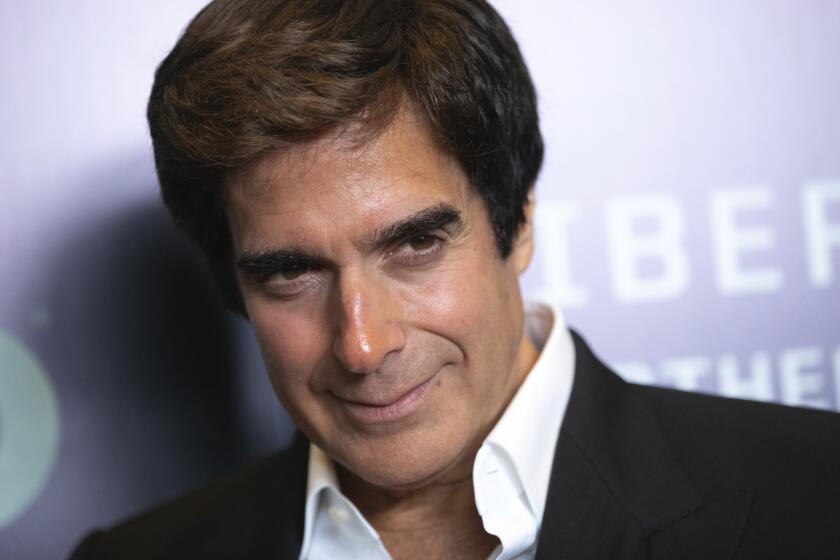Sanctions on Pakistan Likely to Be Lifted Soon
Congress moved Wednesday to lift economic sanctions against Pakistan and British Prime Minister Tony Blair prepared to travel to Islamabad, the latest steps by the United States and its allies to improve relations with a regime treated as an outcast before the war on terrorism.
Blair’s trip, tentatively set for Friday, would make him the highest-level Western visitor since the Sept. 11 attacks. The plans were announced by the Pakistani government; Britain declined to confirm them for security reasons.
Before the attacks on the United States, Blair had been a harsh critic of the government of President Pervez Musharraf, an army general who seized power in a 1999 coup. Blair endorsed a campaign to suspend Pakistan from the Commonwealth, a group of former British colonies.
On Capitol Hill, the Senate Foreign Relations Committee agreed to speed legislation lifting sanctions that were imposed on Pakistan in 1998, after the country tested a nuclear device, and tightened a year later after Musharraf’s coup. The measure would also clear the way for a resumption of U.S. foreign aid to Pakistan. The funding once totaled more than $500 million a year but was ended in 1990 because the country was developing nuclear weapons.
And in another indication of how world politics seem to have changed since the terrorist attacks, Russian President Vladimir V. Putin met with leaders of the European Union and NATO in Brussels. They agreed to increase cooperation on defense and security issues.
“After the tragic events of Sept. 11, the European community has a need to look again at regional security,” Putin said. Russia and the EU decided to hold monthly ambassadorial meetings on foreign and defense policy.
In a joint statement with the 15-nation bloc, Putin said cooperation will include exchanges of intelligence on terrorist suspects, false documentation and movements of chemical, biological and nuclear materials.
“For some 40 years, NATO and Russia have sat and glowered at each other,” NATO Secretary-General George Robertson said. “For another 10 years, we tiptoed around each other. But now I believe that we are entering an era where substantial and practical cooperation is going to build a unique relationship between us.”
Also Wednesday, Secretary of State Colin L. Powell discussed relations with Pakistan and other elements of the war on terrorism with members of the Senate Foreign Relations Committee over lunch at the State Department. Sen. Joseph R. Biden Jr. (D-Del.), chairman of the panel, said the lawmakers urged the administration to take its time in launching a retaliatory strike against Afghanistan, where Osama bin Laden and his terrorist network have their headquarters.
“Most of us believe that the president has time,” Biden said. “The American people understand the importance of making sure this gets done right.”
Bush, Taliban Stand Their Ground
Nevertheless, the administration sought to clear away possible impediments to an attack on Afghanistan’s Taliban leadership. President Bush and his top aides have said there will be no negotiations with the Taliban, which has been given the stark choice of handing over Bin Laden and his cohorts or facing an attack that could topple the regime.
Demonstrating that third-party negotiations with the Taliban have reached an impasse, Muslim clerics representing four Pakistani political parties allied with the Taliban canceled a trip to the Afghan city of Kandahar, where they had hoped to meet with the regime’s leadership.
Meanwhile, Defense Secretary Donald H. Rumsfeld visited the first of four predominantly Muslim countries the administration considers vital to its anti-terrorism plans. He spent Wednesday in Riyadh, Saudi Arabia. He plans to visit Oman and Egypt today and finish up Friday in Uzbekistan, a former Soviet republic on Afghanistan’s northern border.
Rumsfeld’s hastily scheduled trip stirred speculation that it might be a final swing through the region before military strikes begin.
Bush told reporters in New York that Rumsfeld intends to assure potential allies that the United States is in the fight against terrorism for the long haul and will not abandon countries that provide assistance.
“People need to be able to look us in the eye and know that when we say that we’re in this for the long run--that we’re going to find terrorists and bring them to justice--we mean it,” he said.
The most important stop on Rumsfeld’s schedule may be in Uzbekistan, where former Soviet air bases would provide an ideal jumping-off spot for U.S. raids into Afghanistan.
Uzbek officials continued to deny reports that U.S. planes and troops had already landed at fields near the Afghan border.
Before arriving in Saudi Arabia, Rumsfeld was asked by reporters if he knew where U.S. forces could find Bin Laden. He replied, “I have a little bit of a handle, but I don’t have coordinates.”
Officials in Islamabad cast the Blair trip as a welcome development rife with symbolic significance.
“Prime Minister Tony Blair is coming here to express his sympathy and support to Pakistan at this critical juncture,” said Pakistan Foreign Minister Abdus Sattar.
“This will be a high point of international diplomacy on Afghanistan,” said another senior official in Islamabad, the Pakistani capital. “It represents an appreciation of Pakistan’s stand.”
Pakistan shares a 1,400-mile border with Afghanistan that cuts through areas largely populated by Pushtuns, the largest ethnic group in Afghanistan. The Musharraf regime risks alienating much of this population in his country by supporting the U.S.-led campaign.
Under pressure from the United States and its allies, Musharraf withdrew Pakistan’s diplomats from Kabul, the Afghan capital, and has promised to play a logistical role in the coalition’s efforts to remove Bin Laden.
$500 Million in Aid Under Consideration
In Washington, a senior Senate aide said the administration is considering a package of about $500 million for Pakistan, in addition to $100 million that has already been provided.
The sanctions on Pakistan include a ban on arms shipments and a U.S. veto of loans from the International Monetary Fund and other lending agencies. Shortly after last month’s attacks on the World Trade Center and the Pentagon, the Bush administration announced that the sanctions would be eased, although congressional approval is required to lift some of them.
Committee action could come as early as today with approval by the full Senate expected next week.
Senators balked at an initial administration request for broader powers to lift sanctions against any country that might be persuaded to help in the war on terrorism, a step that could cover countries such as Syria and Sudan. Biden said he counseled the administration: “We’ll give you all you need. Don’t ask for more than you need right now.”
In another move likely to anger Taliban leaders, Musharraf told an Italian diplomat Wednesday that he would encourage efforts by Mohammed Zahir Shah, Afghanistan’s deposed king, to build a transition government. Margherita Boniver, the Italian Minister of State for Foreign Affairs, said Musharraf called for the 86-year-old former monarch to send an emissary to Islamabad to discuss the future of Afghanistan.
In Brussels, Nicholas Burns, the U.S. ambassador to NATO, gave members of the alliance a U.S. checklist of actions Washington wants its allies to take. The North Atlantic Treaty Organization has already invoked the article of its charter declaring that an attack on one member is regarded as an attack on all.
“We moved into discussing what NATO can do and what we can do for each other in this situation,” State Department spokesman Richard Boucher said. “And there are specifics that we put forward, where NATO governments can help each other to make sure that we can deal with the situation properly.”
Putin said he did not receive the list because Russia is not an alliance member. But he said he is familiar with the contents. He said Moscow is prepared to provide use of military bases, airspace and intelligence reports as the war on terrorism proceeds.
Tempest reported from Islamabad, Anderson from Washington. Times staff writers Norman Kempster and Paul Richter in Washington, Marjorie Miller in London and Maura Reynolds in Moscow contributed to this report.
More to Read
Start your day right
Sign up for Essential California for news, features and recommendations from the L.A. Times and beyond in your inbox six days a week.
You may occasionally receive promotional content from the Los Angeles Times.






